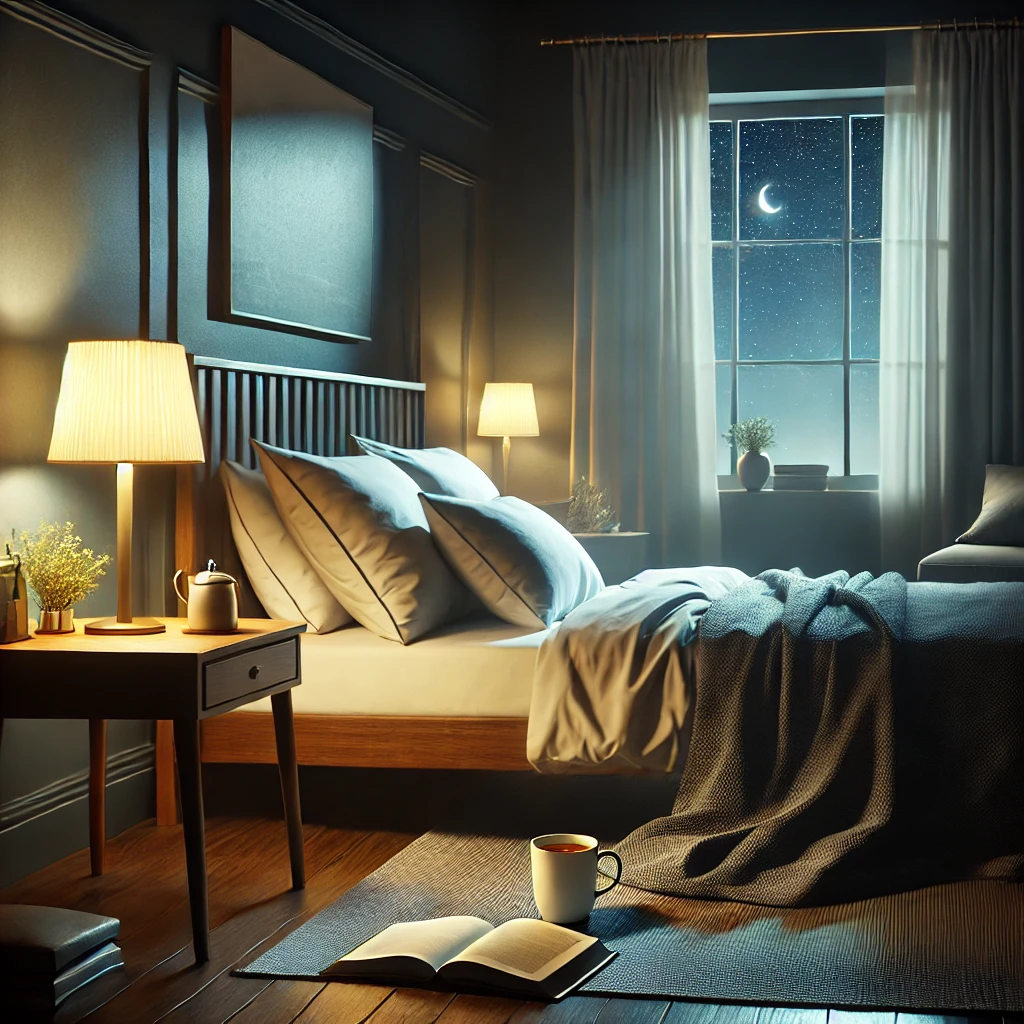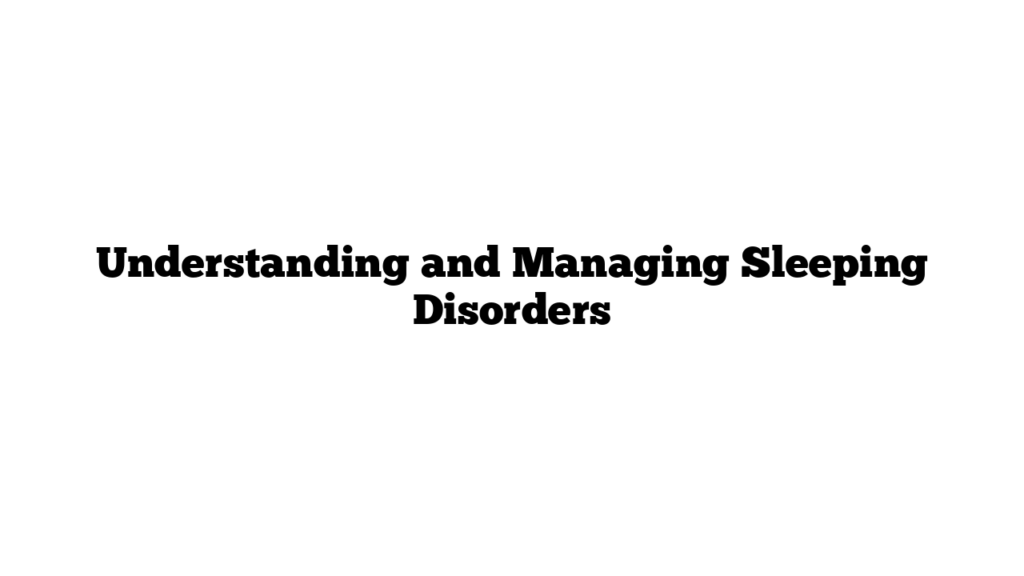Sleeping Disorders
Sleep is an essential part of our daily lives, yet millions of people struggle with sleeping disorders that affect their health, productivity, and overall quality of life. A sleeping disorder isn’t just occasional trouble falling asleep; it’s a chronic condition that disrupts your body’s natural sleep patterns. These disorders can range from mild to severe, requiring tailored care.
In this article, we’ll explore the types, causes, symptoms, and treatments of sleeping disorders, along with tips to help you get better rest.

What Are Sleeping Disorders?
Sleeping disorders are medical conditions that prevent people from enjoying consistent, restful sleep. These issues can lead to fatigue, mood changes, decreased productivity, and even long-term health problems such as heart disease and diabetes.
Common Types of Sleeping Disorders
- Insomnia
- The inability to fall asleep or stay asleep.
- Common causes: stress, anxiety, depression, and poor sleep habits.
- Sleep Apnea
- A condition where breathing stops and starts during sleep.
- Often linked to obesity and lifestyle factors, especially in the USA.
- Restless Legs Syndrome (RLS)
- An uncontrollable urge to move the legs, often disrupting sleep.
- Narcolepsy
- A neurological disorder causing extreme daytime drowsiness and sudden sleep attacks.
- Circadian Rhythm Disorders
- When the body’s internal clock is out of sync with the environment (e.g., jet lag or shift work).
What Causes Sleeping Disorders?
Several factors can contribute to sleeping disorders, including:
- Lifestyle Habits: Irregular sleep schedules, excessive screen time, and high caffeine intake.
- Mental Health Issues: Conditions like anxiety, depression, and PTSD.
- Medical Conditions: Chronic pain, asthma, or heartburn.
- Genetic Factors: Some disorders like narcolepsy may run in families.
- Environmental Factors: Noise, light pollution, or an uncomfortable sleeping environment.
Symptoms to Watch For
- Difficulty falling or staying asleep.
- Feeling tired despite sleeping for several hours.
- Snoring or gasping for air during sleep.
- Trouble concentrating during the day.
- Sudden, uncontrollable sleep episodes.
If these symptoms persist, consulting a healthcare provider is crucial.
Diagnosing Sleeping Disorders
Healthcare providers use various tools to diagnose sleeping disorders, such as:
- Sleep Studies (Polysomnography): Monitors brain waves, oxygen levels, and heart rate.
- Home Sleep Tests: Less invasive, often used to detect conditions like sleep apnea.
- Questionnaires: Tools like the Epworth Sleepiness Scale assess daytime sleepiness.
Treating Sleeping Disorders
Treatment varies based on the specific disorder but may include:
- Lifestyle Changes:
- Establishing a regular sleep schedule.
- Limiting caffeine and alcohol before bed.
- Creating a comfortable sleeping environment.
- Medications:
- Sleeping pills or melatonin for short-term relief.
- Medications like modafinil for narcolepsy.
- Therapies:
- Cognitive Behavioral Therapy for Insomnia (CBT-I).
- Breathing devices like CPAP for sleep apnea.
- Natural Remedies:
- Herbal teas such as chamomile.
- Relaxation techniques like meditation and deep breathing.
Tips for Better Sleep
- Stick to a bedtime routine.
- Use blackout curtains to block light.
- Exercise regularly, but not too close to bedtime.
- Turn off screens at least an hour before bed.
- Visit medicaltimes.io for more tips and insights.
The Impact of Sleep Disorders in the USA
Did you know that over 50 million Americans suffer from sleep disorders? Sleep apnea, in particular, is prevalent, with many cases linked to rising obesity rates in the USA. The economic impact is significant, costing billions annually in lost productivity and healthcare expenses.
FAQs About Sleeping Disorders
- What is the most common sleeping disorder?
- Insomnia tops the list, affecting millions worldwide.
- Can sleeping disorders be cured?
- Many can be managed or improved with the right treatment and lifestyle changes.
- Are sleeping pills safe?
- Short-term use is generally safe, but long-term use should be monitored by a doctor.
- How do I know if I have sleep apnea?
- Common signs include loud snoring, gasping for air, and excessive daytime fatigue.
- What natural remedies help with sleep?
- Chamomile tea, lavender oil, and magnesium supplements can promote relaxation.
- Why do I feel tired after 8 hours of sleep?
- Poor sleep quality, underlying health conditions, or stress might be the cause.
- How much sleep do adults need?
- Most adults require 7-9 hours of sleep per night.
- Can diet impact sleep?
- Yes, foods rich in magnesium and tryptophan can improve sleep quality.
- What is a sleep study?
- It’s a diagnostic test that evaluates your sleep patterns and detects disorders.
- Do sleep disorders affect children?
- Yes, conditions like insomnia and sleep apnea can also occur in children.
